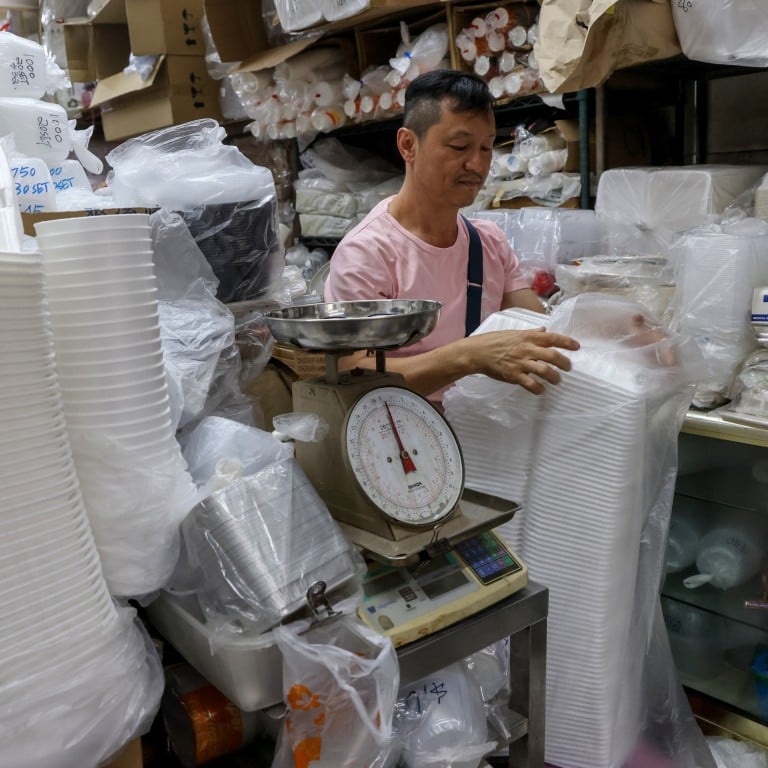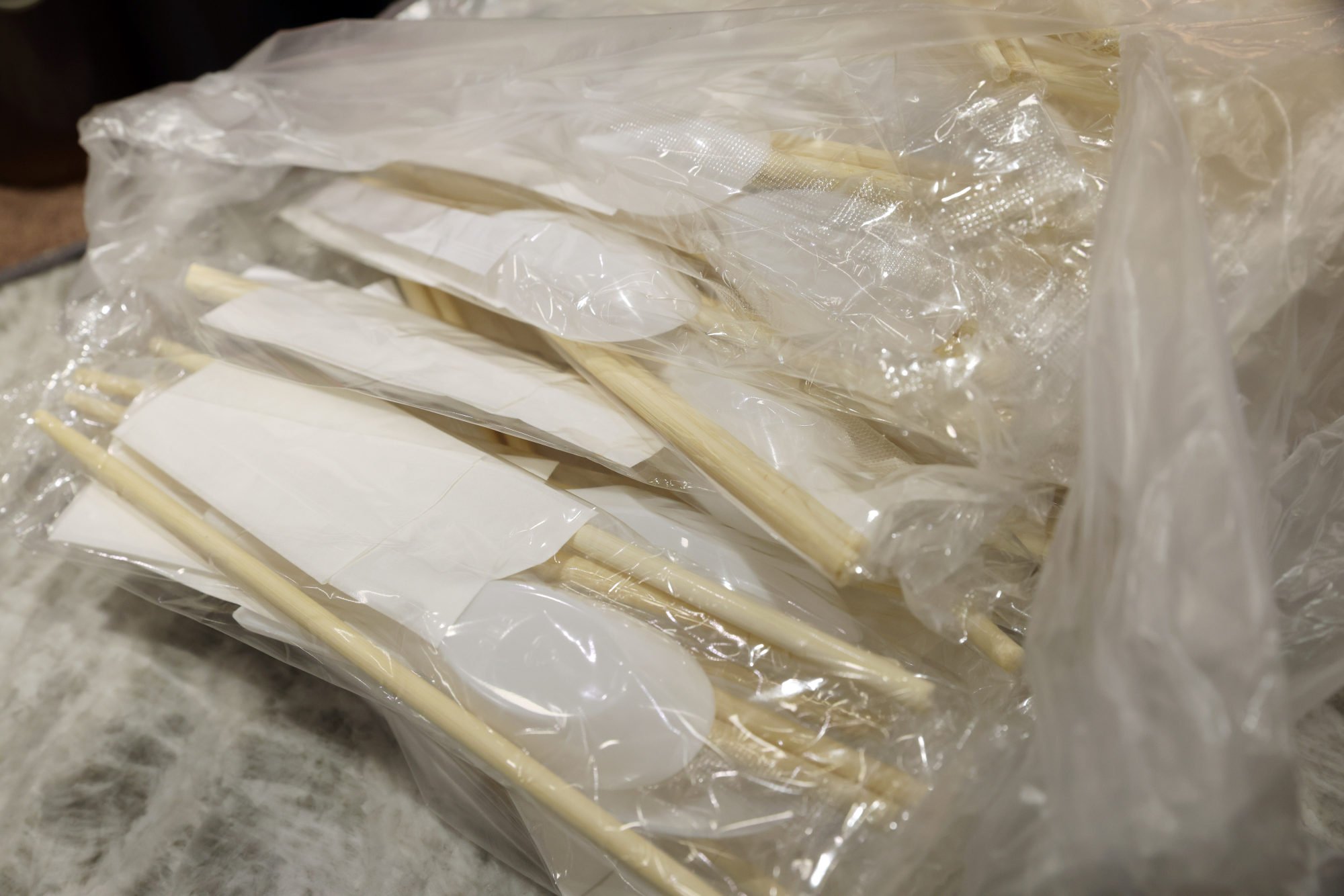
Hong Kong may extend 6-month grace period for plastics ban that starts Monday: minister
- Environment chief Tse Chin-wan says he feels six months sufficient for businesses to clear out inventories of soon-to-be-banned plastic utensils, but open to extension
- ‘Our overall approach is hoping to help the industry eliminate plastics. So if we really see any reason for an extension after six months, we are happy to consider it,’ he says
But an industry representative said an extension would be unfair to operators who made the effort to switch, with plastic alternatives typically costing more but shunned by patrons.
The first phase will cover styrofoam products and throwaway utensils such as cutlery and straws offered at takeaway spots. Single-use plastic cups and boxes will also no longer be available to patrons dining in.
Secretary for Environment and Ecology Tse Chin-wan told a TV programme on Saturday that authorities were open to extending the grace period.
“Some people have also asked me whether the six-month [grace period] is a hard deadline,” he said.
“Our overall approach is hoping to help the industry eliminate plastics. So if we really see any reason for an extension after six months, we are happy to consider it.”
But the minister said he felt six months was enough time for restaurants to clear out the last of their single-use plastic items, while wholesalers could sell off remaining stock to businesses overseas.
Under the six-month grace period, authorities will avoid taking enforcement action against non-compliant businesses.
Hong Kong’s plastics ban will saddle hotels with extra costs: industry chiefs
Tse stressed that the law would not prohibit travellers from bringing in single-use plastics for personal use, leaving the public with “some flexibility”.
In a separate TV appearance, he also argued that single-use cutlery made from paper and wood offered customers a better dining experience.
“In the past when we were using disposable plastic tableware, those forks couldn’t pierce anything at all. How could it cut through steak? The wooden forks we have now are better than those,” he said.
“I didn’t find the plastic knives very easy to use. I tried them all and they would break if I applied too much force. On the contrary, the wooden knives are sturdier and less susceptible to breaking. I don’t see a huge difference in usability.”
The comments drew mockery on online discussion forum LIHKG, with one user urging the minister to show how he would cut pork cutlets with a wooden knife.
“I suggest [he] also demonstrate how to drink a milkshake from a paper tube that has been soaked for 15 minutes,” another user said.

Simon Wong Kit-lung, honorary president of the Institute Of Dining Professionals, warned that it would be unfair if some restaurants could continue using plastic cutlery given the cost savings.
“I personally think it is not appropriate to extend [the grace period]. Half a year is already a long time and an excessive extension will constitute unfair competition for merchants who are willing to abide by the law,” he said.
Political observer Sonny Lo Shiu-hing said the minister’s openness to a longer grace period showed that authorities were taking a more cautious approach following the “lack of comprehensive planning” in a delayed waste-charging scheme.
But he warned that the proliferation of online criticism over the single-use plastic policy showed growing dissatisfaction with the government on certain issues.
“Internet users are still angry and cynical because they believe that the government should do better in terms of managing livelihood issues, ranging from supply of public housing flats and garbage collection to fire prevention measures in old buildings,” Lo said.

